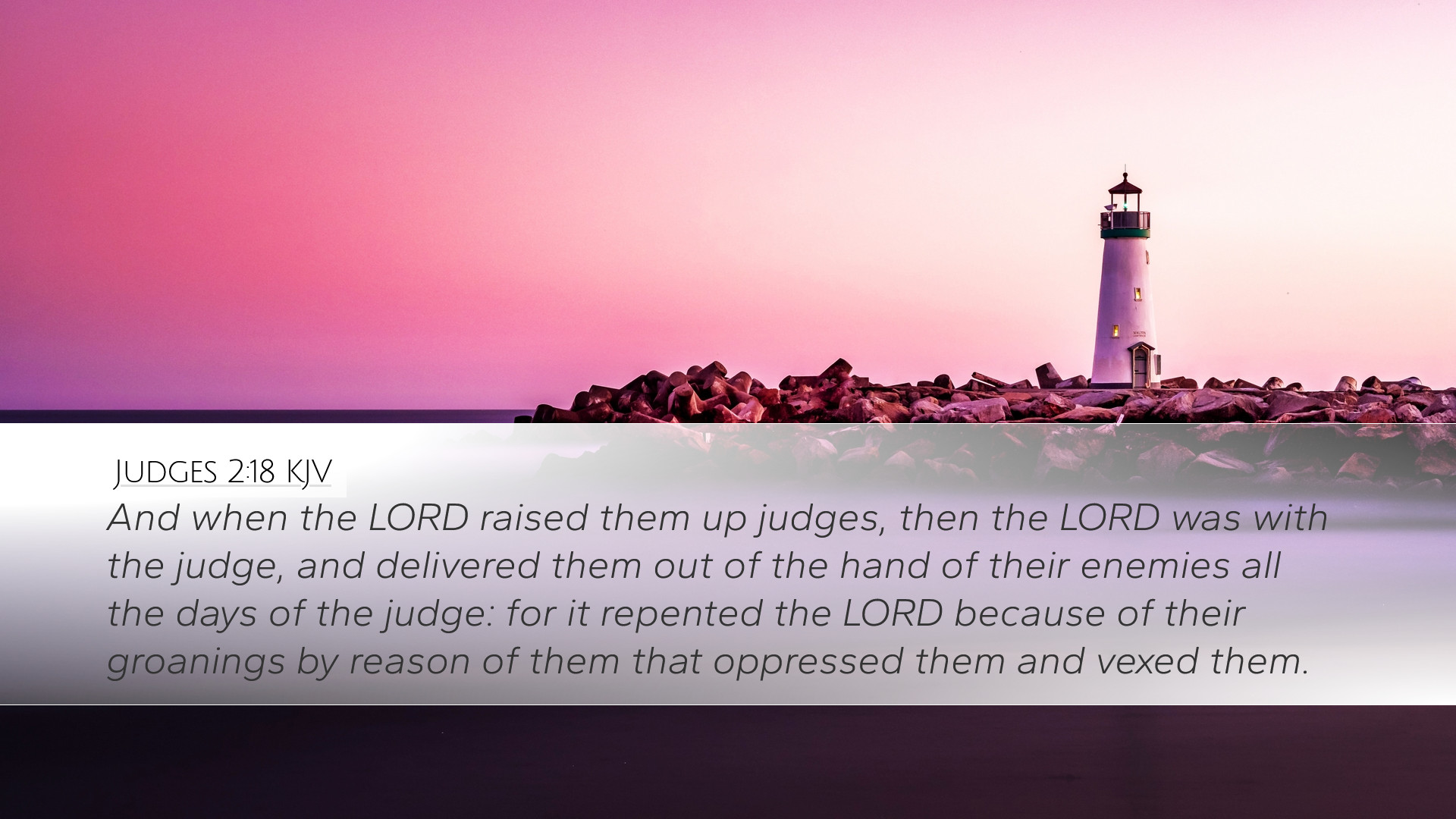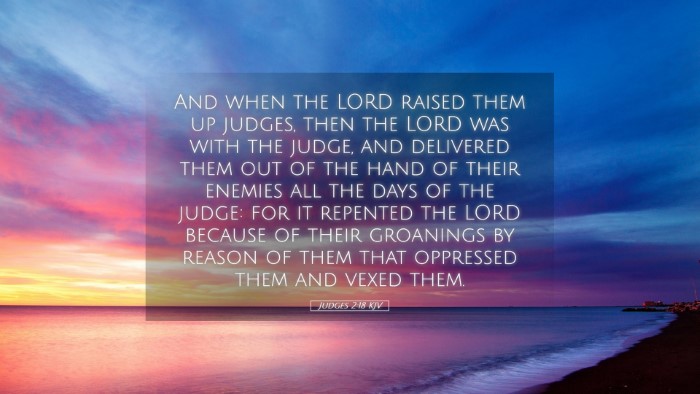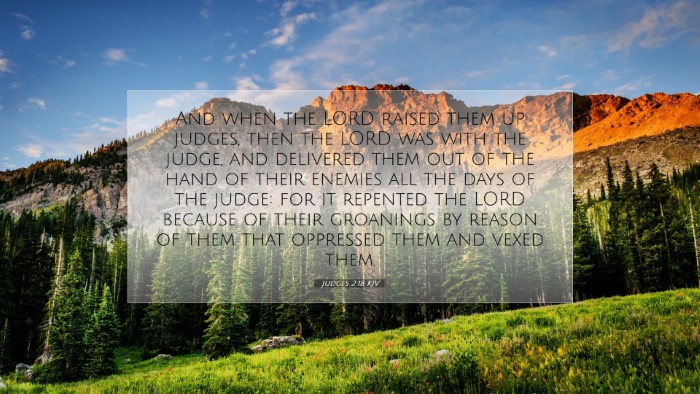Old Testament
Genesis Exodus Leviticus Numbers Deuteronomy Joshua Judges Ruth 1 Samuel 2 Samuel 1 Kings 2 Kings 1 Chronicles 2 Chronicles Ezra Nehemiah Esther Job Psalms Proverbs Ecclesiastes Song of Solomon Isaiah Jeremiah Lamentations Ezekiel Daniel Hosea Joel Amos Obadiah Jonah Micah Nahum Habakkuk Zephaniah Haggai Zechariah MalachiJudges 2:18
Judges 2:18 KJV
And when the LORD raised them up judges, then the LORD was with the judge, and delivered them out of the hand of their enemies all the days of the judge: for it repented the LORD because of their groanings by reason of them that oppressed them and vexed them.
Judges 2:18 Bible Commentary
Commentary on Judges 2:18
Judges 2:18: "And when the LORD raised them up judges, then the LORD was with the judge, and delivered them out of the hand of their enemies all the days of the judge: for it repented the LORD because of their groanings by reason of them that oppressed them and vexed them."
Introduction
Judges 2:18 encapsulates a pivotal aspect of God’s covenant with Israel during the time of the judges. In this commentary, we will delve deep into the significance of this verse, exploring the implications of divine intervention, the role of judges, and God’s emotional engagement with His people as highlighted in public domain commentaries.
Overview of Context
This verse reflects the cyclical nature of Israel’s history during the period of the judges, marked by a cycle of sin, oppression, repentance, and deliverance. It is essential to understand this context to fully grasp the weight of God's actions and intentions.
Divine Compassion and Leadership
According to Matthew Henry, God's raising of judges illustrates His ongoing commitment to His people, demonstrating divine empathy and willingness to intervene in times of trouble. The phrase "it repented the LORD" indicates a deep emotional response from God, driven by the cries and suffering of His people.
Judges as God’s Instruments
Henry further points out that the judges were not merely civil leaders but divinely appointed instruments of salvation. They served as mediators who restored order and faith among the Israelites, acting as both military leaders and spiritual guides.
God’s Empathy
Albert Barnes emphasizes that God’s compassion is shown through His actions when Israel cries out in anguish. This divine empathy is crucial as it reinforces the understanding that God is not distant but intimately involved in the affairs of His people.
The Cycle of Sin and Deliverance
Judges 2:18 is a point of reflection on Israel’s cyclic experience of rebellion followed by suffering and redemption. Adam Clarke notes this cyclical pattern illustrates the faithfulness of God in contrast to the unfaithfulness of Israel, reaffirming the concept of grace amid human frailty.
Human Inconstancy
Clarke points out the nature of human depravity; while God's covenant remains steadfast, the people frequently fall back into sin, necessitating God’s repeated acts of mercy through judges.
Theological Implications
This verse raises significant theological considerations about God’s nature and His governance of the world. The emotional language, such as the LORD's repentance, suggests a God who is relational and responsive to human circumstances.
Narrative Theology
According to Henry, the narrative of the judges serves to convey theological truths about God’s justice, mercy, and sovereignty. He operates within history, addressing the plight of His people while holding them accountable for their choices.
God's Interactive Governance
Barnes underscores that God’s interactions with Israel challenge the notion of divine immutability, inviting scholars to consider how God's will can accommodate human action while maintaining His divine purposes.
Application for Today
The themes extracted from Judges 2:18 resonate today, highlighting God's unwavering commitment to humanity amidst cycles of sin and redemption. Pastors and theologians can draw significant insights about effective leadership in their faith communities from the roles of the judges.
Leadership in Faith Communities
Judges serve as models for contemporary leaders, emphasizing the importance of reliance on God for guidance and the necessity of compassion and intervention in times of crisis.
Understanding Divine Compassion
This verse encourages students and scholars to explore the dynamic between divine sovereignty and human agency, recognizing that God’s compassion bears weight in understanding the nature of grace and redemption.
Conclusion
Judges 2:18 serves as a reminder of God’s active role in human history, illustrating His desire to deliver and redeem those who are oppressed. Understanding this verse through the lens of public domain commentaries offers rich dimensions for spiritual reflection and scholarly inquiry.


